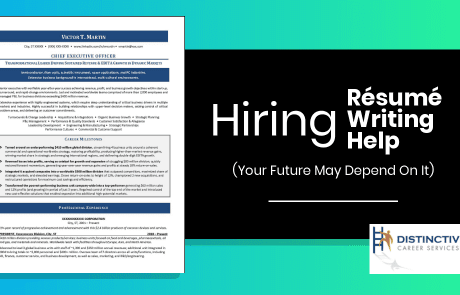
Believe what you like, but don’t believe everything you read without questioning it.
– Pauline Baynes
This is sage advice that too many of us don’t heed as often as we should. Executive resume writing myths and outdated advice run rampant on the internet. Some are persistent myths spread by people who don’t know better and mistakenly generalize their individual preferences on executive resume writing. Others are simply leftover, outdated advice offered in articles and books published a decade ago or more.
And…this is where I must admit to being slightly guilty myself. I have been writing executive resumes professionally for 25 years as of 2021. Executive resume writing best practices have evolved continually in those two-plus decades. While I have stayed up-to-date, attending annual conferences and workshops and monitoring current trends, to ensure our executive clients always benefit from my cutting-edge knowledge, there are a number of articles in the public domain that I published, that are now outdated.
This post, that you are reading right now, is a rewritten and updated version of an article that I believe I first published in 1999. When I found the original in the archive of my blog recently, I knew it was way overdue time for me to refresh it with current executive resume writing best practices.
Here then, are the most prevalent myths and up-to-date advice on executive resume writing that you must know.
1) Myth: An executive resume should be only one, or at the most, two pages.
It is true that you have only a few seconds to capture a reader’s attention with your executive resume. It is also true that with each additional page you reduce your chances of your resume being read thoroughly.
But, it is unrealistic and nearly impossible to compress the depth of information needed to tell an executive career story in a single page.
If you try to do so, important achievements are left out to make room for a full chronology of the career history and education. What you’ll have left is a boring listing of companies, positions, and dates that are the opposite of the dynamic, compelling marketing document that your executive resume should be.
A better strategy is to write your executive resume with exactly as much detail and description as is needed to persuasively convince the reader that you are the ideal candidate to solve his or her problems – but NO MORE.
There was a time, in the first decade of the 21st century, when executive resumes were getting longer and longer. We’ve had executives come to us with old, dense, wordy resumes that go on, and on…..and on! I’ve seen these “career obituary” resumes ramble on for four, five, six, or even more pages.
Ugh. I’m sure you’ve had an incredible career with amazing accomplishments. It is unlikely you would have reached the executive level if this weren’t true. But, why would anyone want to read six dense pages of detail about you? Why would anyone even think anyone would have the time to read a resume this lengthy?
By writing a succinct, to-the-point resume with only the most compelling and RELEVANT stories of success, you demonstrate your respect of the reader’s time, your understanding of the facts that will be most interesting and important to them, and your ability to communicate effectively.
So, what is the right length for an executive resume?
You might be surprised to hear my answer: your executive resume should be just long enough to convey the information you must convey to pique the readers’ interest enough that they pick up the phone and call you for an interview to learn more.
As we fully enter the second decade of the 21st century, this means that in most cases you should be striving to keep your executive resume to two pages, although there are times when three pages are justified.
My best advice: review and edit your executive resume with a very discriminating eye toward reducing unnecessary wordiness.
Every word in your resume should have a purpose. Use succinct, dynamic, action-oriented language to convey your ability to add value to the reader’s company and you will capture and hold attention through two or even three pages.
2) Myth: Executives really don’t need a resume anyhow.
I can’t tell you how many times I’ve heard this myth.
Unfortunately, those who fall prey to it are the executives who leave ten urgent phone messages for me on Friday night after 5 pm, because a recruiter has called them about their dream job and they NEED to have a resume ready by Monday morning.
This brings to mind the saying: If you fail to prepare, you prepare to fail.
I’m sorry. It is just too late at that point. You simply can’t afford NOT to be prepared when the ideal opportunity comes around.
Now, I know you are probably thinking: “Yes, but I have a large network and valuable relationships I can draw on.”
That may be true, but even with a personal introduction for an executive job opportunity you will be asked for a resume, and a poorly written, thrown-together resume will NOT convey the executive image you need to convey. Any advantage you have from that introduction will be severely undermined by the poor impression you make with your resume.
Also, consider the fact that you have a personal brand whether you know it or not: your personal brand is what people are saying about you when you are not in the room. Smart, successful executives take active control of their personal brand, consciously and proactively conveying the image and brand they want to convey. Your executive resume is one of the best opportunities you have to convey and promote your personal brand in the way you want people to see you. You would be wise to take full advantage of the opportunity.
3) Myth: Executives don’t need to worry about the ATS-compatibility of their resume.
This is an executive resume writing myth that can destroy the results of your executive job search. If your resume is not properly optimized for ATS, you may send it to a recruiter for a dream job and they may never even see it. You won’t hear back and you won’t know why. A very likely reason: it was rejected from the ATS.
The myth goes like this: executive jobs aren’t found by responding to ads (this is mostly true).
Rather, executive jobs are found primarily through networking and/or by working with retained recruiters (yes, true again).
Therefore, the myth continues, an executive resume won’t end up in some electronic applicant tracking system (ATS) like the resumes of lower-level professionals (NOT true).
Currently, we know that close to 100% of third-party recruiters are using an ATS to manage resumes and executive candidates, 99% of Fortune 500s have incorporated the use of ATS into their corporate HR operations, and even small companies are adopting ATS – approximately one-third as I write this, and growing fast.
Your executive resume will almost certainly end up in an ATS.
In fact, no matter how aggressively you are networking, you should assume that it will.
So, it stands to reason that you will want to make sure your resume is as compatible with ATS standards as possible and that it includes all of the most important and relevant keywords that a recruiter might use when searching for a candidate for your dream job.
The recommendations for creating an ATS-compatible resume are constantly changing and evolving as the technology becomes increasingly advanced.
This is a key advantage of working with a skilled, experienced executive resume writer: we NEED to keep up on these standards and guidelines. When we write an executive resume, we always make sure that it follows current best practices.
A GREAT executive resume always begins with great resume content. Working with an executive resume writer will ensure that your resume is not just ATS friendly, but also powerful and compelling.
However, if you insist on writing your own executive resume, we highly recommend the use of ATS-friendly executive resume templates. Using a high-quality executive resume template will help you make sure your executive resume checks the ATS compatibility and modern, eye-catching boxes.
4) Myth: An executive resume should include your entire career history and chronology.
The opposite of this “career obituary” myth is the myth that your executive resume should be written to include ONLY the last ten years of your experience. Both are false.
Your executive resume is a marketing document and the content should be selected strategically to support your focus and value proposition.
While it is true that readers of your resume will be most interested in your most recent experience, there is often value in including experience further back in your history.
Perhaps your early career includes work for well-known, prestigious companies. Perhaps you want to document the full scope of your cross-industry experience, much of which occurred in your early career. Perhaps you believe some valuable networking opportunities may come out of your experience 15 or 20 years ago. Or perhaps your most impressive accomplishments were in a position you held 12 years ago.
In any case, it will be apparent to the reader that your executive career did not suddenly materialize ten years ago so there is little harm and many benefits to summarizing this early experience.
Of course, this does not mean that you must give equal page weight to your early career. If you feel early dates will be used to screen you out, subtly leave them out of your early career summary.
If some early career positions have more strategic relevance to your current career goals than others, give them more emphasis in your executive resume summary.
On the other hand, perhaps your career took a shift 10 or 15 years ago into a new industry in which you have excelled and advanced quickly and you wish to continue this trajectory. Your early career was in a completely different and irrelevant functional area and industry. You may have a very good reason to write a resume that leaves out the irrelevant details and includes only your most recent experience.
The bottom line: Think carefully about the content of your resume. If there is solid reasoning behind your desire to present early experience then do so. If not, leave it out of your resume or briefly summarize it with little detail.
5) Myth: An executive resume should include personal information, to indicate the many dimensions to your life and interests.
A very common executive resume writing mistake involves including personal information.
There is no way to predict the personal biases of the individuals who will read your resume.
The first and primary way that a recruiter uses a resume is to screen candidates out. Don’t give them any reason to screen you out.
Board memberships, related volunteer work, and professional associations should often be included but religious affiliations, family status, country club memberships, and hobbies have no place on an executive resume.
The only exception to this is when you are preparing a resume specifically written to appeal to a single individual who you are absolutely certain would be fascinated in your piloting license or passion for golf.
Even then, be careful, you never know where your resume will be passed. However, if you are certain that your personal information will help you to break the ice and build rapport, you may have a valid reason for including it.
Are you thinking about hiring professional help to have your executive resume written? We encourage you to call us for a free, no-obligation Discovery Consultation.
Article updated, refreshed, and republished with standards for executive resume writing in 2021 and beyond.









